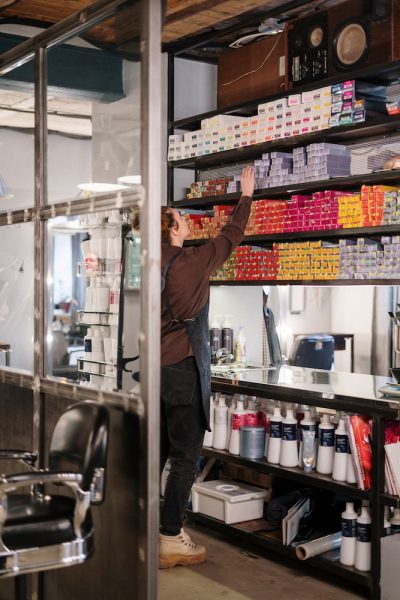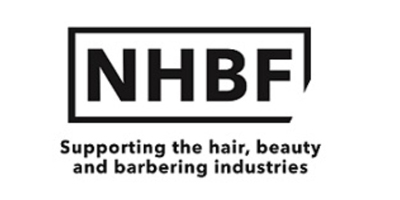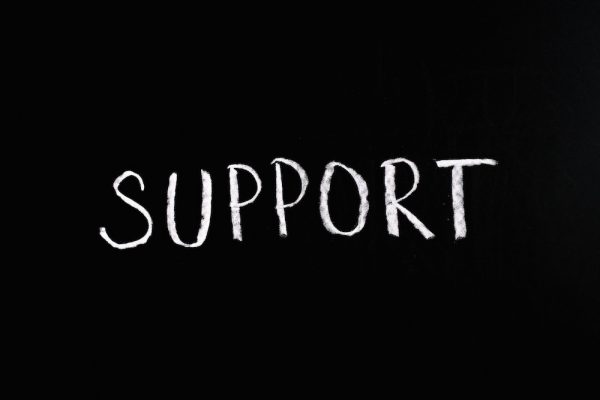There is a renewed fight for survival. Although our resilient industry is slowly recovering from the ongoing recession, we need more support, says the National Hair & Beauty Federation. A quarterly ‘State of the Industry’ survey by the NHBF shows that our sector is slowly recovering, yet still hopes for more government support to ensure business survival and future growth.
Since a low point last September, businesses are still facing uncertainty, rising costs and stagnated growth aspirations. The negative outlook remains. Recent business support from the 75% discount on business rates for retail in 2023/24 and continued energy support through the Energy Bill Discount Scheme is welcome. However, states the NHBF, further support will be needed to ensure that well-established businesses can continue to provide valuable employment.

A renewed fight for survival
Richard Lambert, NHBF chief executive, says: “After businesses have battled through the last two years, the hair and beauty industry is now faced with a renewed fight for survival. The latest survey results show that businesses already in debt are still grappling with rising energy costs, supplier and staff costs. With continued and targeted support from the UK Government, we are confident that the personal care sector will be in position to play a central role in the UK’s economic growth, thriving high streets and community wellbeing into the future.”

The latest NHBF State of the Industry survey found that:
In the climate of rising energy and business costs and declining consumer confidence, the sense of uncertainty that returned in September has now bedded in:
- Slightly more businesses (25%, up from 19% in September) are making either a small or substantial loss. Few are making a small or good profit (30%, down from 35%), and 44% are breaking even.
- Price increases continue. Similar to September, 51% of businesses raised their prices over the previous three months; 66% will do so over the next three months.
- Businesses are worried about the impact of energy costs, supplier costs and the rise to the National Minimum Wage/National Living Wage (NMW/NLW). In response, they are removing non-essential expenditures, increasing prices and holding off taking on staff/apprentices.

In response to energy bill support being more than halved through the Energy Bill Discount Scheme, businesses intend to increase prices, remove non-essential expenditures and hold off taking on staff/apprentices.
Reliance on external support is still high and in line with levels seen in the autumn. Nearly three-quarters (71%) of businesses are either wholly or partially reliant on Government support. This reliance peaked at 81% in January 2022. 
Staffing, recruitment and apprentices
- Recruitment intentions are still low. In the next three months, only 15% of respondents are definitely or likely to take on new staff (12% in September).
- Over the last three months, 21% have cut back on apprentices (25% in September). Similar to the autumn, only 9% were definitely or likely to take on apprentices in the next three months.
- Half of the businesses (50%) say they were either unsure or would not be supporting apprentices to the end of their course.

Looking to the future
Business survival expectations are still muted in line with the NHBF’s autumn findings. Only half (49%) are confident of their survival. The number of businesses unsure of survival over the next six months is still high at 44%.
Growth intentions are at a similar low to September, with 30% saying they intend to grow their business either rapidly or moderately. Equal numbers of companies plan to remain the same size (44%), and there is a slight rise in those planning to downsize or hand over the business (25%, up from 22% in September).
The latest survey findings show that, after a challenging two years, the sector is facing a renewed fight for survival. Further Government support will be needed to keep well-established salons and barbershops in business through the recession.

The NHBF is therefore calling for the following:
- Further targeted support on energy: support for businesses that signed up for higher-than-usual contracts or whose contract renewals are coming up over the next 3-6 months. The government and Ofgem are taking a more active role in ensuring energy companies pass on the support and grants, and incentives to encourage energy efficiency.
- Broader business support: suspension of debt repayments for businesses under pressure, banks encouraged to offer more flexibility around the repayment of loans and restraint on further rises to the National Minimum Wage (NMW) and National Living Wage (NLW).
- The NHBF wants to secure future sector talent with apprenticeship incentives up to £3,000 per employee.
- Urgent review of taxation, which is disincentivising growth: critical thinking of how VAT is applied because the current system whereby a salon immediately becomes liable for a £17,000 VAT bill as soon as they cross the threshold is a powerful incentive to remain below this line.
- A crackdown on tax-evading businesses.

Survey responses
The survey received around 500 (488) responses between 9-18 January 2023. It gathered views from a good representation of businesses in the personal care sector across all areas. This included city centres and villages in England, Northern Ireland, Scotland and Wales.
Respondents included salon and barbershop owners, chair and room renters, home-based business owners, mobile or freelance practitioners, employers and the self-employed. The vast majority (95%) of respondents were salon or barbershop owners. 7% were self-employed individuals. 2% were involved in the broader space renting, mobile and freelance part of the sector; this is either the sole focus of their business or in addition to being a salon or barbershop owner.
In 2020-21 the Office of National Statistics reported that the UK’s 46,000 salon businesses (hair, beauty and barbershops) delivered a combined turnover of around £4.6 billion. If we receive more support and continue to stay strong through the current economic crisis, we will survive.
@nhbfsocial
Respect is a hub for UK hairdressers of all ages and stages to find out what We Love, We Hear and We See as the best product launches, styling advice, hairtools, education training and seminars and hairshows! We bring you ‘Revitalise dried-out hair’ on behalf of Fudge Professional. Sign up to our newsletter which is sent fortnightly direct to your email, so you stay up-to-date with salon styling information, trends in session work, advice on presenting on stage or progress in educating – whatever your interest, whether you’re a trainee or creative director, an educator or team leader, you’ll find all the opportunities and ideas on www.respectyou.me







